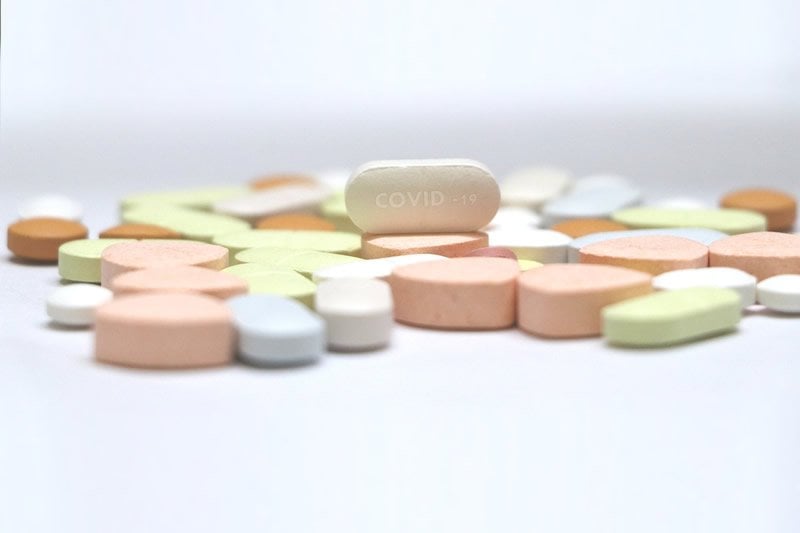Summary: Researchers found no evidence NSAIDs, such as ibuprofen, may result in worse outcomes for some COVID-19 patients or help control the virus. TNF blockers and JAK inhibitors, used to treat inflammation and arthritis, were also found to be safe to use. However, low amounts of prednisolone or tacrolimus therapy may be useful in treating coronavirus infection.
Source: King’s College London
A recent study has found that there is no evidence for or against the use of non-steroidal anti-inflammatory drugs such as ibuprofen for patients with COVID-19.
The study, led by researchers at King’s College London, also found other types of drugs, such as TNF blockers and JAK inhibitors safe to use.
89 existing studies on other coronavirus strains such as MERS and SARS, as well as the limited literature on COVID-19, were analysed to find out if certain pain medications, steroids, and other drugs used in people already suffering from diseases should be avoided if they catch COVID-19.
Some patients, for example, those with cancer, are already given immunosuppressive drugs – therapies that can lower the body’s immune system – or immunostimulant drugs – therapies that boost it. If these patients then catch COVID-19, doctors need to know what medication to stop.
Dr Mieke Van Hemelrijck, a cancer epidemiologist and an author on the paper, said “This pandemic has led to challenging decision-making about the treatment of COVID-19 patients who were already critically unwell. In parallel, doctors across multiple specialties are making clinical decisions about the appropriate continuation of treatments for patients with chronic illnesses requiring immune suppressive medication.”
The article has been published in ecancermedicalscience, an open access oncology journal, and is authored by researchers from King’s College London and Guy’s and St. Thomas NHS Foundation Trust, London.
There had been some speculation that non-steroidal anti-inflammatory drugs (NSAIDs) such as ibuprofen might make things worse for some COVID-19 patients, but the researchers did not find evidence to support this statement.
Other types of drugs such as TNF blockers and JAK inhibitors, used to treat arthritis or other forms of inflammation, were also found to be safe to use. Another class of drug known as anti-interleukin-6 agents is being investigated for helping to fight COVID-19, although there is no conclusive proof yet.

The researchers found that low amounts of prednisolone or tacrolimus therapy may be helpful in treating COVID-19. Co- author, Dr Sophie Papa, a medical oncologist and immunologist said: “Current evidence suggests that low dose prednisolone (a steroid used to treat allergies) and tacrolimus therapy (an immunosuppressive drug given to patients who have had an organ transplant) may have beneficial impact on the course of coronavirus infections. However further investigation is needed.”
As more people catch the disease, researchers will continue to investigate how it interacts with commonly used medications and make further guidance recommendations.
Source:
King’s College London
Media Contacts:
Tanya Wood – King’s College London
Image Source:
The image is in the public domain.
Original Research: Open access
“Associations between immune-suppressive and stimulating drugs and novel COVID-19—a systematic review of current evidence”. Beth Russell, Charlotte Moss, Gincy George, Aida Santaolalla, Andrew Cope, Sophie Papa and Mieke Van Hemelrijck.
ecancermedicalscience doi:10.3332/ecancer.2020.1022.
Abstract
Associations between immune-suppressive and stimulating drugs and novel COVID-19—a systematic review of current evidence
Background: Cancer and transplant patients with COVID-19 have a higher risk of developing severe and even fatal respiratory diseases, especially as they may be treated with immune-suppressive or immune-stimulating drugs. This review focuses on the effects of these drugs on host immunity against COVID-19.
Methods: Using Ovid MEDLINE, we reviewed current evidence for immune-suppressing or -stimulating drugs: cytotoxic chemotherapy, low-dose steroids, tumour necrosis factorα (TNFα) blockers, interlukin-6 (IL-6) blockade, Janus kinase (JAK) inhibitors, IL-1 blockade, mycophenolate, tacrolimus, anti-CD20 and CTLA4-Ig.
Results: 89 studies were included. Cytotoxic chemotherapy has been shown to be a specific inhibitor for severe acute respiratory syndrome coronavirus in in vitro studies, but no specific studies exist as of yet for COVID-19. No conclusive evidence for or against the use of non-steroidal anti-inflammatory drugs (NSAIDs) in the treatment of COVID-19 patients is available, nor is there evidence indicating that TNFα blockade is harmful to patients in the context of COVID-19. COVID-19 has been observed to induce a pro-inflammatory cytokine generation and secretion of cytokines, such as IL-6, but there is no evidence of the beneficial impact of IL-6 inhibitors on the modulation of COVID-19. Although there are potential targets in the JAK-STAT pathway that can be manipulated in treatment for coronaviruses and it is evident that IL-1 is elevated in patients with a coronavirus, there is currently no evidence for a role of these drugs in treatment of COVID-19.
Conclusion: The COVID-19 pandemic has led to challenging decision-making about treatment of critically unwell patients. Low-dose prednisolone and tacrolimus may have beneficial impacts on COVID-19. The mycophenolate mofetil picture is less clear, with conflicting data from pre-clinical studies. There is no definitive evidence that specific cytotoxic drugs, low-dose methotrexate for auto-immune disease, NSAIDs, JAK kinase inhibitors or anti-TNFα agents are contraindicated. There is clear evidence that IL-6 peak levels are associated with severity of pulmonary complications.






